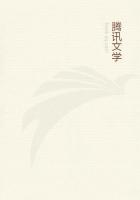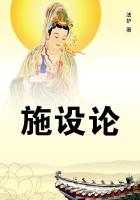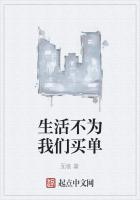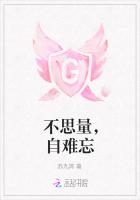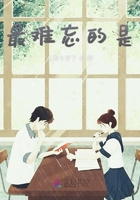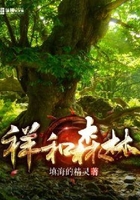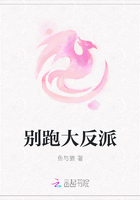O the little, little, female, female monad!"
This ultra littleness and ultra femaleness has been demanded and produced by our Androcentric Culture.
Following this, and part of it, comes the effect on motherhood. This function was the original and legitimate base of family life; and its ample sustaining power throughout the long early period of "the mother-right;" or as we call it, the matriarchate; the father being her assistant in the great work. The patriarchate, with its proprietary family, changed this altogether; the woman, as the property of the man was considered first and foremost as a means of pleasure to him; and while she was still valued as a mother, it was in a tributary capacity.
Her children were now his; his property, as she was; the whole enginery of the family was turned from its true use to this new one, hitherto unknown, the service of the ***** male.
To this day we are living under the influence of the proprietary family.
The duty of the wife is held to involve man-service as well as child-service, and indeed far more; as the duty of the wife to the husband quite transcends the duty of the mother to the child.
See for instance the English wife staying with her husband in India and sending the children home to be brought up; because India is bad for children. See our common law that the man decides the place of residence; if the wife refuses to go with him to howsoever unfit a place for her and for the little ones, such refusal on her part constitutes "desertion" and is ground for divorce.
See again the idea that the wife must remain with the husband though a drunkard, or diseased; regardless of the sin against the child involved in such a relation. Public feeling on these matters is indeed changing; but as a whole the ideals of the man-made family still obtain.
The effect of this on the woman has been inevitably to weaken and overshadow her sense of the real purpose of the family; of the relentless responsibilities of her duty as a mother. She is first taught duty to her parents, with heavy religious sanction; and then duty to her husband, similarly buttressed; but her duty to her children has been left to instinct. She is not taught in girlhood as to her preeminent power and duty as a mother; her young ideals are all of devotion to the lover and husband: with only the vaguest sense of results.
The young girl is reared in what we call "innocence;" poetically described as "bloom;" and this condition is held one of her chief "charms." The requisite is wholly androcentric. This "innocence" does not enable her to choose a husband wisely; she does not even know the dangers that possibly confront her. We vaguely imagine that her father or brother, who do know, will protect her. Unfortunately the father and brother, under our current "double standard" of morality do not judge the applicants as she would if she knew the nature of their offenses.
Furthermore, if her heart is set on one of them, no amount of general advice and opposition serves to prevent her marrying him. "I love him!" she says, sublimely. "I do not care what he has done. I will forgive him. I will save him!"
This state of mind serves to forward the interests of the lover, but is of no advantage to the children. We have magnified the duties of the wife, and minified the duties of the mother; and this is inevitable in a family relation every law and custom of which is arranged from the masculine viewpoint.
From this same viewpoint, equally essential to the proprietary family, comes the requirement that the woman shall serve the man. Her service is not that of the associate and equal, as when she joins him in his business. It is not that of a beneficial combination, as when she practices another business and they share the profits; it is not even that of the specialist, as the service of a tailor or barber; it is personal service--the work of a servant.
In large generalization, the women of the world cook and wash, sweep and dust, sew and mend, for the men.
We are so accustomed to this relation; have held it for so long to be the "natural" relation, that it is difficult indeed to show that it is distinctly unnatural and injurious. The father expects to be served by the daughter, a service quite different from what he expects of the son.
This shows at once that such service is no integral part of motherhood, or even of marriage; but is supposed to be the proper industrial position of women, as such.
Why is this so? Why, on the face of it, given a daughter and a son, should a form of service be expected of the one, which would be considered ignominious by the other?
The underlying reason is this. Industry, at its base, is a feminine function. The surplus energy of the mother does not manifest itself in noise, or combat, or display, but in productive industry. Because of her mother-power she became the first inventor and laborer; being in truth the mother of all industry as well as all people.
Man's entrance upon industry is late and reluctant; as will be shown later in treating his effect on economics. In this field of family life, his effect was as follows:
Establishing the proprietary family at an age when the industry was primitive and domestic; and thereafter confining the woman solely to the domestic area, he thereby confined her to primitive industry. The domestic industries, in the hands of women, constitute a survival of our remotest past. Such work was "woman's work" as was all the work then known; such work is still considered woman's work because they have been prevented from doing any other.
The term "domestic industry" does not define a certain kind of labor, but a certain grade of labor. Architecture was a domestic industry once--when every savage mother set up her own tepee. To be confined to domestic industry is no proper distinction of womanhood; it is an historic distinction, an economic distinction, it sets a date and limit to woman's industrial progress.


